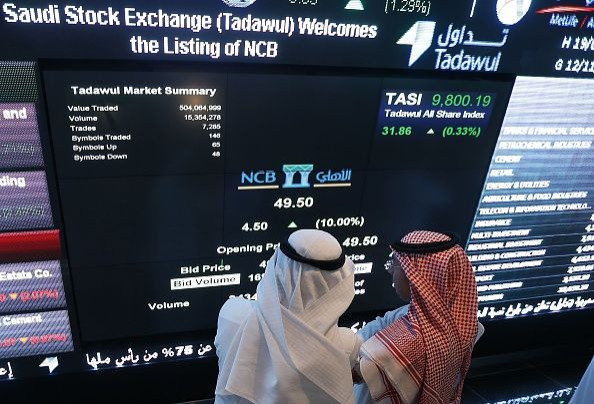Saudi Stocks Plunge On Fresh Oil Worries After Lifting Of Iran Sanctions; Egypt Follows

Shares in Saudi Arabia fell more than 6 percent Sunday morning as investors reacted to the lifting of sanctions against Iran, fearing that the move may worsen the global oil glut as Iran looks to ramp up its crude oil exports. Global oil prices dropped below the $30 mark, settling at $29 per barrel Friday. Egypt's market also hit its lowest point in two years.
On Saudi Arabia's headline index, the Tadawul All Share Index, 167 stocks fell, while no stock showed a gain. Dubai’s DFM General Index also lost 5.2 percent by afternoon, its biggest loss in five months.
Economists attributed the slump in the market to Iran’s move to boost oil exports after the United Nation’s nuclear watchdog said Saturday that the country has complied with the terms of an international agreement to curb its nuclear program. The additional expected stock could put further downward pressure on crude oil prices.
"Iranian oil supply will come to the market as early as today or tomorrow," Nayal Khan, the Riyadh-based head of institutional equities sales trading at Saudi Fransi Capital, told Bloomberg. "The market’s recovery will depend on whether we can get oil back above $30.
Saudi Arabia, the largest exporter of crude oil in the world, responded to the falling crude prices by introducing new austerity measures to stabilize government finances last year. However, with prices at a 12-year low, oil dependent economies of Saudi Arabia, Kuwait, Oman, Qatar and the United Arab Emirates could see more spending cuts in 2016.
Qatar’s QE Index fell 7 percent, while Abu Dhabi’s ADX General Index slumped 4.2 percent to the lowest level since November 2013. Oman’s MSM 30 Index dropped 3.2 percent, the most since December 2014. Kuwaiti stocks also lost 3.2 percent, plunging to the lowest level since May 2004, and Bahraini equities fell 0.4 percent, Bloomberg reported.
“With the low oil price, [Saudi’s government is] hemorrhaging cash and getting through its reserves quite quickly. [The kingdom] has a lot on its plate. Iran is an additional unwelcome pressure on the region at a time when they could do without it,” Mark Burgess, chief investment officer of Columbia Threadneedle, a fund house, told the Financial Times.
Meanwhile, in Egypt the main stock market index slid 5.2 percent Sunday in a broad-based sell-off, as foreign sellers divested Egyptian shares heavily through the week, causing panic among local investors in Cairo, Reuters reported.
© Copyright IBTimes 2024. All rights reserved.





















